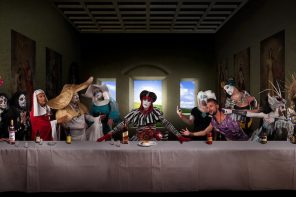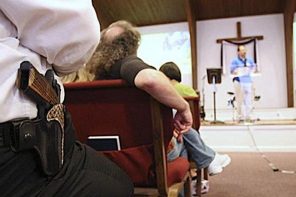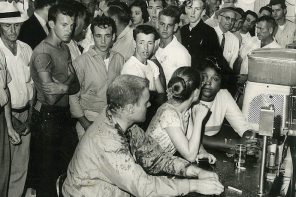During the campaign, Barack Obama likened his appeal to a Rorschach inkblot test: people see in him what they wish; he is a screen onto which they project their desires. Depending on the observer, he is black, biracial, or postracial—too black or not black enough. Some regard him as the culmination—the flower—of the civil rights movement; others see him as a repudiation of civil-rights style leadership.
While some see a bold progressive who, by erasing the bitter taste of George W. Bush, will bring change we can believe in, I see a cautious, triangulating, overly market-friendly liberal in the tradition of Bill Clinton.
As we enter this historic week, there is symmetry between Obama’s election as the 44th President of the United States in 2008 and Martin Luther King’s assassination in 1968. Symmetry can be aesthetically pleasing. Symbolically, we might be tempted to regard Obama’s inauguration as the end of a forty year “wilderness” experience. Before getting carried away with the symmetry and symbolism, however, we might very well need to pray that Obama’s administration is not in substance an extension of the reign of King George.
Oh ye of little faith! Other than bringing the disastrous Bush administration to an end, I do not have much faith in the progressive potential of an Obama administration. (I pray that he proves me wrong.) What little faith I had was greatly diminished by Obama’s call during the campaign for ending the Iraq War only to escalate the Afghanistan War. In many ways, Obama is proving his former pastor Rev. Jeremiah Wright to be a truth-teller insofar as Wright’s assertion that, “If our money is tied up in, and our merchants are heavily invested in it, then our military will back it up.”
Furthermore, his war-mongering rhetoric toward Iran makes me deeply skeptical, even distrustful, of his geopolitics and foreign policy instincts. This is why I am clear: despite the metaphorical symmetry and the closeness in proximity between the King holiday and Obama’s inauguration, we should never confuse the latter with the former!
I realize that King (the prophet) and Obama (the politician) have different social locations and roles, and operate under different circumstances. Nevertheless, King saw interlocking relationships among poverty, racism, and militarism. In contrast, Obama threatens military action against Iran and ignores the poor. Apparently, he doesn’t see this “other America”—the America Michael Harrington saw. He speaks only of the middle class. I call this “middle class astigmatism,” which distorts the moral vision and certainly the rhetoric of American politicians.
The King-Obama symbolism and symmetry can only take us so far. We can only hope and pray that Obama’s administration will be better than the evidence suggests. Let me take that back: rather than hoping and praying—or in addition to doing so—we should act like citizens by holding Obama accountable. Years ago I heard Jesse Jackson say regarding President-elect Jimmy Carter that “peanuts taste better when parched.” Obama is no peanut farmer. He is a Chicago politician. We had better remember that and learn how to hold his feet to the proverbial fire.
That, it seems to me, is the best way to remember King.




